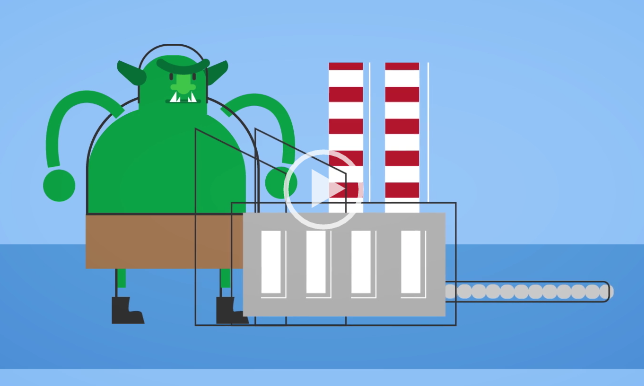Watch our new video on the important process the Patent Office uses to weed out the worst patents. Then join our efforts to help us fight for fair patent laws here!
Lest you think Congressional failure to pass patent reform has anything to do with protecting legitimate patent owners, here are some numbers that prove otherwise:
In Q1 2016, non-practicing entities (the nicer word for trolls) filed the majority of patent lawsuits in the U.S.;
Nearly 90 percent of high tech patent litigation is related to these so-called non-practicing entities;
Nearly 95 percent of all non-practicing entity litigation happened in the high-tech space; and
The vast majority of these cases (87 percent!) take place in the isolated and bizarre Eastern District of Texas.
All that to say, we have a big patent troll problem in this country, which continues to disproportionately harm startups and small businesses. Accordingly, we continue to support comprehensive patent reform, starting with the Patent Act in the Senate—a bill we hope goes to the full Senate floor in short order.
Over the past five years, those of us who support patent reform have had some important victories that are slowly helping to fix some of the worst problems with our broken system. Those important gains are under attack right now.
First, the inter partes review procedure, which we explain in more detail here, is threatened by many who would like to see its undoing. Watch our new video on this important procedure. Some background:
As part of the last update to patent law, 2011’s America Invents Act, Congress created a procedure called inter partes review (IPR). IPRs allow a party to challenge a patent’s validity at the Patent Office instead of in court. These proceedings were designed to move quickly, within a year, and are considerably cheaper than litigation. While IPRs remain too expensive for most small startups (with legal fees, an IPR can easily cost upward of $250,000), they represent smart policy that helps rid the system of bad patents.
Despite the program’s modest but important success at weeding out some of the worst patents, it’s under attack from those who oppose patent reform and apparently believe a 20-year government monopoly should not have to withstand any scrutiny. Specifically, representatives from certain industries (e.g., the pharmaceutical and biotechnology industries) claim that IPRs are “patent death squads” and have been hard at work on Capitol Hill trying to roll back the program’s effectiveness by dulling its procedures.
Even more insidious is the recent attack on a very important provision of the patent law called Section 101. That section sets a framework for what can and cannot be patented. Specifically, no one can get a patent on law of nature, abstract ideas, or natural phenomena. For good reason! These basic functions are the core of human being and should be equally shared across the population from which to build and create upon.
In 2014, in a case called Alice v. CLS Bank, the Supreme Court looked at what the word “abstract” really meant and decided that taking an otherwise abstract idea (e.g., simple math) and performing that idea on a generic computer does not somehow make that idea patentable. (You can read more here.) The pre-Alice v. CLS Bank patents were really often that simple, and they were the favorite weapons of the patent trolls. Because patents last for 20 years, hundreds of thousands of those patents remain on the books (all the more reason we need a strong IPR procedure to challenge them!).
Alice v. CLS Bank is now a crucial tool to fight challenges based on what are, in a word, stupid patents. It importantly helps primarily in the high-tech space (as it relates to software patents), and leaves other patents, like pharmaceutical ones, alone.
Despite that, Alice v. CLS Bank—and Section 101 more broadly—are under attack. In fact, the former head of the Patent Office recently publicly called for the abolition of this important check on what can and can’t be patented.
We still need comprehensive patent reform to fix a dangerous patent troll problem. But Section 101 and Alice v. CLS Bank are crucial tools to ensure that the patent system remains at least somewhat balanced; that it protects not just those who get patents but those who, in order to innovate and invent, need to understand their rights; and that it serves all Americans, not just those who know how to play its game.
We will continue to fight for real patent reform and do whatever we can to inject balance and reason into a broken system. Join us for this crucial fight here.



